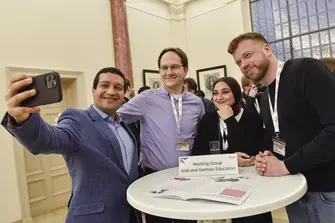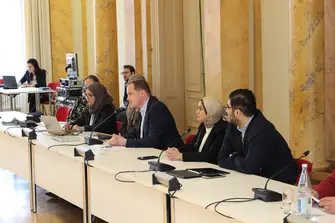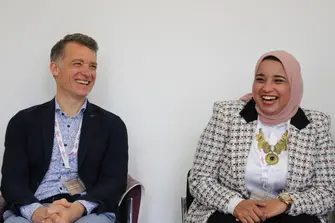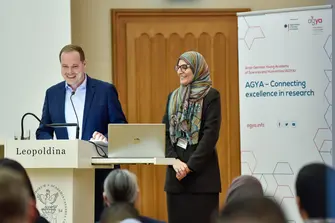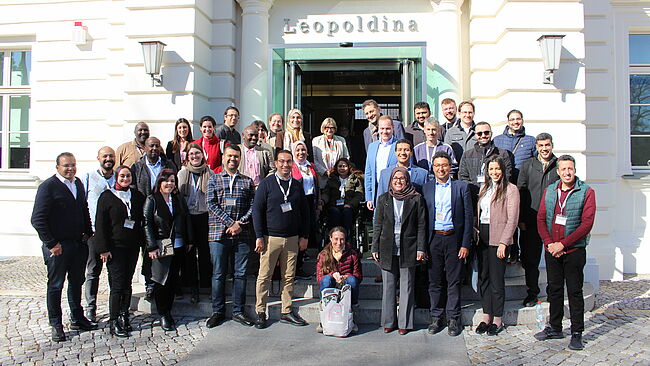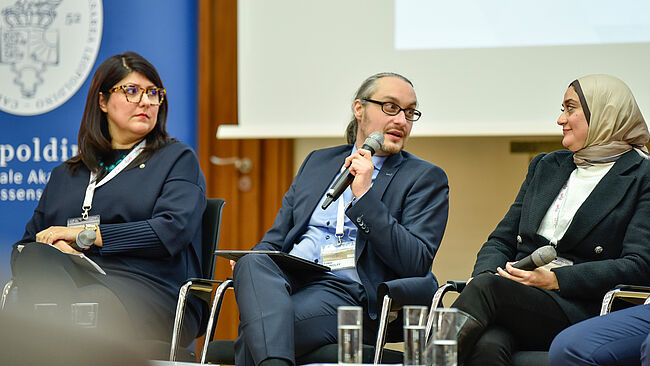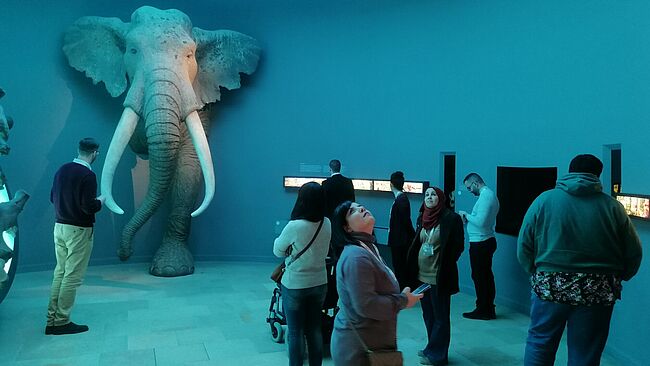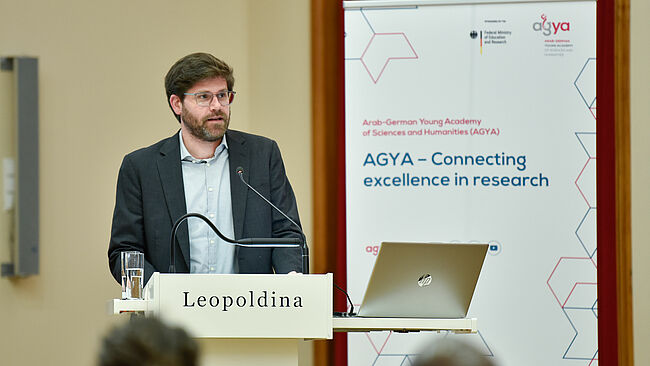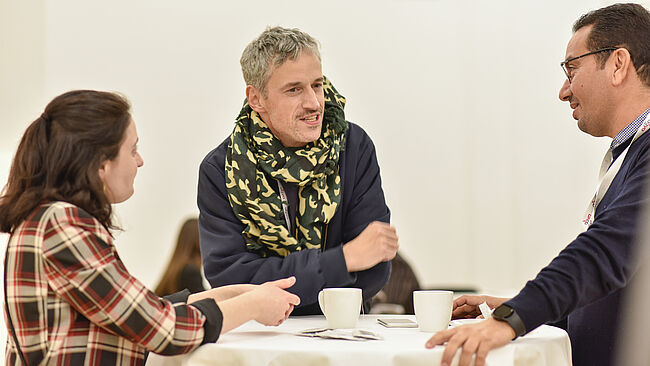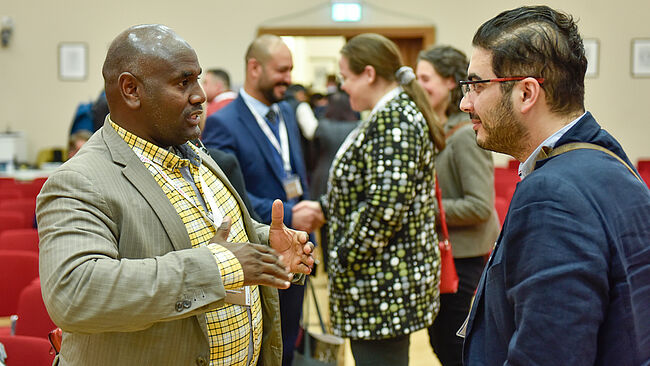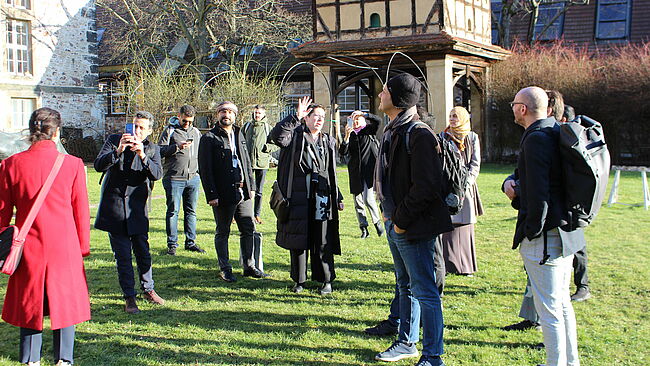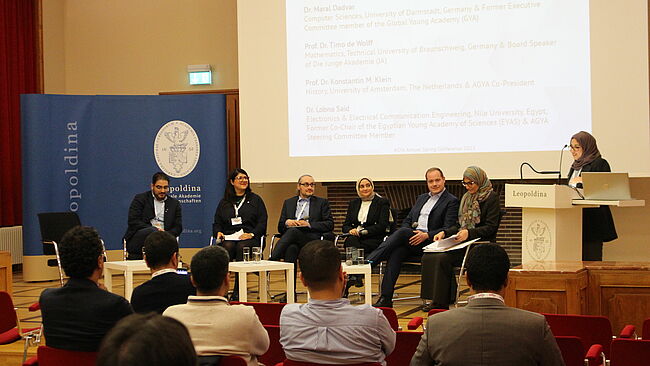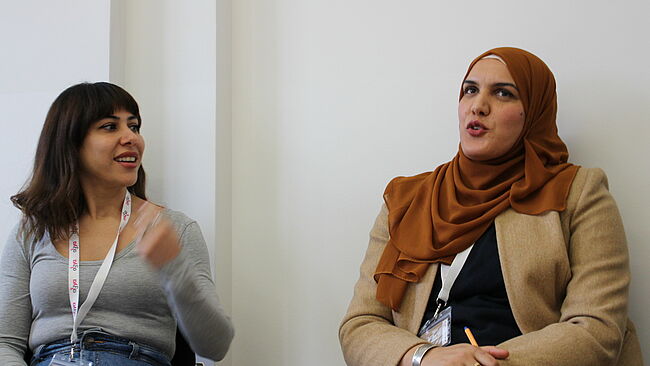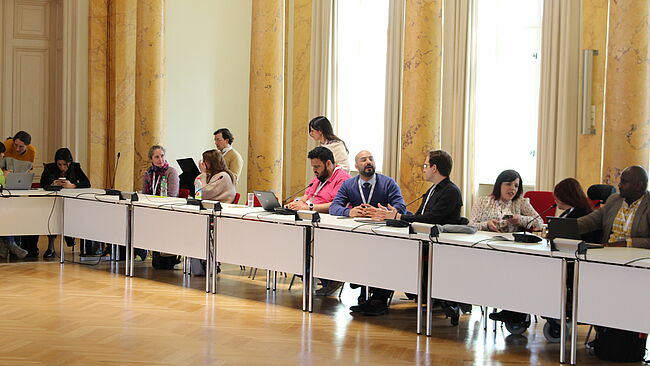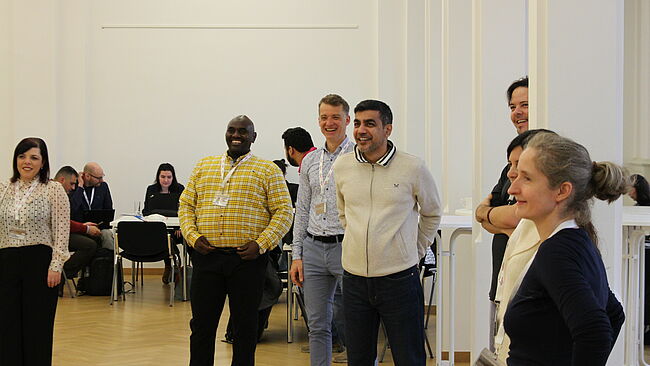Academies in a VUCA World: Young Scholars Address Volatility – Uncertainty – Complexity – Ambiguity
AGYA Annual Spring Conference 2023
What does it mean to be a young scholar in the VUCA world? The AGYA Annual Spring Conference 2023 brought together all its members from many different disciplines to exchange on the impact and agency of young academies in an era defined by “Volatility, Uncertainty, Complexity, and Ambiguity (VUCA)”. For the second time in AGYA’s history, host of the conference was the Leopoldina – German National Academy of Sciences, strengthening and deepening the trustful relations between both the senior and the young academy. Halle, the historical city known for its intellectual heritage, served as the perfect backdrop for this inspiring event. In her welcome address AGYA Co-President Prof. Dr. Olfa Messaoud stated that the global situation, especially during the post-COVID-19 pandemic, coupled with several social, political, and economic crises, has made the world for us all the more VUCA.
In the midst of this unpredictable world situation, one thing I am strongly confident about: the key to success for a young academy lies in inter- and transdisciplinary work environments, which further enable us to dismantle barriers and to overcome the obstacles we might encounter.
Olfa Messaoud, AGYA Co-President
The VUCA world is characterized by constant change, new, sometimes disruptive technologies, and global interconnectedness. Academies that bring together excellent and committed researchers to jointly address these challenges play a crucial role in preparing individuals, organizations, and societies to thrive in this dynamic environment. During the conference, AGYA members aimed to deepen their understanding of the VUCA world, its impact on different sectors, and how they can contribute to meeting the evolving needs of society.
Evidence-based Policy Advice and Science Diplomacy
AGYA Principal Investigator (PI) Prof. Dr. Verena Lepper warmly welcomed all members and opened the conference with two ice-breaking sessions, laying the foundations to build strong ties in the AGYA family and for a joyful conference week. During a public event, Christian Weidlich, Senior Officer at the International Relations Department of the Leopoldina introduced the German National Academy of Sciences and gave a keynote lecture on international policy advice. Evidence-based policy advice and science diplomacy are vital for addressing global challenges, promoting international collaboration, and fostering trustful relationships between scholars. The keynote lecture was inspiring for the AGYA members, internalising that decisions based on solid scientific evidence and engaging in science diplomacy might motivate research institutions to work together, find solutions to shared problems, and contribute to a more stable, prosperous, and sustainable world.
Young academies equip early-career researchers with crucial skills beyond university education, enabling career advancement and promoting their role as science ambassadors in society.
Maral Dadvar, Global Young Academy Alumna
How Do Young Academies Prepare and Set-Up for the Future?
Another highlight of the conference was the panel discussion on ‘The Academy of Tomorrow – Many Routes to Many Futures’. AGYA Co-Presidents Prof. Dr. Olfa Messaoud and Prof. Dr. Konstantin M. Klein opened the festive evening event and welcomed all AGYA members and invited guests in the impressive Chimney Hall of the Leopoldina. The inspiring panel brought together former and present steering committee members from different young academies: Prof. Dr. Timo de Wolff (Die Junge Akademie), Dr. Maral Dadvar (Global Young Academy), Dr. Lobna Said (Egyptian Young Academy) and Prof. Dr. Shadi Albarqouni, who is co-founder of the Palestine Young Academy and AGYA Steering Committee member. Co-President Prof. Dr. Olfa Messaoud and Steering Committee member Dr. Nadia Bahra moderated the event.
Tango, AGYA and VUCA? However strange this combination might sound, it is perfectly reasonable. First of all, Tango has been indeed influenced from both German and Arab cultures. The German musician Heinrich Band invented the bandoneón, the main instrument of Tango music, and Arab immigrants to Latin America and had a great impact on lyrics, songs, and tunes. And nowadays, an ongoing AGYA research project in Lebanon analyses the benefits of Tango dance on physical and mental well-being in the VUCA world.
Konstantin Klein, AGYA Co-President
The young scholars exchanged from Arab-German, global and personal perspectives on the important role their academies play in giving early-career scholars a voice within academia in a lively and thought-provoking discussion. They jointly brainstormed on new paths for future science policy and science diplomacy and how to implement them in a VUCA world. The festive event was framed by two tango performances of AGYA member Dr. Linda Amman and Almut Knauss from the local tango school Tango Mio.
As part of the scientific excursion program of the conference, the AGYA members were able to discuss and exchange with Prof. Dr. Sara Burkhardt, Dean of the University of Art and Design Halle, in the charming ateliers and workshops of the University of Art and Design. Moreover, they explored the world-class National Museum Halle, highlighting the Nebra sky disc. AGYA thus took the opportunity to immerse in the educational, cultural, and historical richness of Halle (Saale).
I was immersed in a melting pot of diverse perspectives. The connections forged and the knowledge gained have left an indelible mark on me, empowering me with newfound enthusiasm and practical strategies to navigate the challenges posed by a VUCA environment, both personally and professionally.
Nada El Darra, AGYA Member
Date and Venue
13 - 17 March 2023
Leopoldina - German National Academy of Sciences
Halle, Germany
